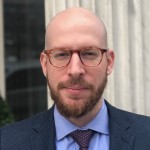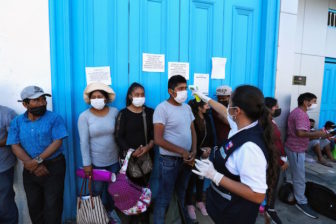Legal immunity for elected officials in Latin America is a prime example of a well-intended policy that has led to pernicious outcomes. Following the transition from authoritarian regimes, several young democracies in the region adopted mechanisms designed to protect legislators and members of the executive branch against political persecution. It made perfect sense, as in most cases dictators with enormous influence over judicial systems had been using their power to criminalize dissent.
But over the years, legal immunity became a shield guaranteeing impunity for the political class from a host of crimes, including corruption. Instead of offering safeguards to the more vulnerable elected authorities, it frequently placed an already powerful political class above the law. In several countries, legal protections were extended to cases unrelated to political freedoms, and in places like Peru or Brazil until recently, to crimes committed even before defendants were elected. Given these aberrations to the rule of law, it is not a coincidence that the topic has become extremely contentious across Latin America, particularly as corruption emerged as a key political and electoral issue.
Restricting immunity for elected officials is key for Latin American countries to advance their ability to fight corruption. Changes to existing protections tend to be enormously popular – about 80% of Peruvians and Mexicans support them. But here too, well-intended policies may lead to bad outcomes. Experience already shows that simply abolishing guarantees does not necessarily bring positive change. Worse still, with Latin America’s public support for democracy at a two-decade low amid a resurgence of populism across the region, going too far could be very dangerous.
The debate over immunity is currently most intense in Peru. President Martín Vizcarra made a proposal to restrict immunity the centerpiece of his political reform program – one that the opposition-controlled Congress is determined to obstruct. Under the current system, the Supreme Court needs Congress’ authorization to investigate lawmakers. First, the case must pass a majority vote in a special legislative commission. In case of approval, the decision goes to a floor vote.
Since 2016, the Supreme Court has requested Congress to suspend the immunity of eight legislators. In only three occasions, however, has Congress agreed. Lawmakers accused of crimes ranging from administrative violations to money laundering were spared. And even when Congress ceded to public pressure, it sometimes took a long time to act – eight months in a case involving a congressman accused of stealing gas from the army (he is currently a fugitive). Vizcarra wants to amend Article 93 of the Constitution to give the Supreme Court full authority to remove parliamentary immunity, but the largest parties are blocking change at all costs. Stonewalled by the opposition, the president announced his intention to anticipate legislative and presidential elections, which would dissolve Congress and cut short his own mandate.
Argentina is another place where, for different reasons, immunity has had great political implications. The senator, former president and now candidate for vice president, Cristina Fernández de Kirchner, is a defendant in six open criminal cases, including four directly related to corruption. Yet since the first accusations were brought, the prospect of her peers in the Senate removing her protection has seemed very remote. The issue is certainly not restricted to Kirchner. Argentine courts in 2015 and 2019 sentenced former President Carlos Menem to several years in prison, but he remains free due to his senator status.
Key Latin American countries have taken important steps to curb excesses. Mexico is a surprisingly positive example. In March, the Senate almost unanimously approved a drastic restriction of fueros for the president, senators and deputies, altering a constitutional article that treated them as “inviolable.” If the new rules had been in place four years ago, several lawmakers and administration officials could have been investigated in connection to scandals that plagued the previous administration. In May 2018, the Brazilian Supreme Court restricted shocking legal privileges for elected officials, determining that “foro privilegiado” only applied to crimes committed during the mandates and related to political activities. The decision immediately sent about 540 cases to local courts. Still, Brazil grants some form of immunity to almost 40,000 authorities.
The most extreme cases of change can also show how the issue is much more intricate than it may seem. Fifteen years ago, with much fanfare and public support, Honduran lawmakers unanimously abolished the need for Congress to authorize investigations against its members. Yet since then, few authorities have been seriously investigated and the country continuously fell in the Transparency International Corruption Perception Index (from 106th place in 2003 to 132nd in 2018). In recent weeks, demonstrations against President Juan Orlando Hernández’s alleged ties to drug cartels have rocked the country.
The Honduran case shows that changing the law has little effect if the powerful in government continue to enjoy a de facto immunity. Legal authority to investigate the corrupt does not create the institutional and political conditions to detect, prosecute and convict them. These depend on long-term gains in several areas critical to the rule of law and democracy, but less capable of mobilizing public opinion – from building better justice systems to improving rules governing the relation between money and politics.
And precisely because of Latin America’s institutional weaknesses, providing safeguards to elected officials is still important, almost three decades after democratic regimes proliferated again in the region. Immunity should be restricted solely to guarantees against political persecution. However, simply eliminating it could one day prove disastrous to democracy – and therefore to the fight against corruption itself.









